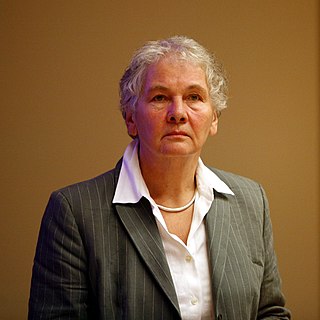A Quote by Ayn Rand
The difference between animals and humans is that animals change themselves for the environment, but humans change the environment for themselves.
Quote Topics
Related Quotes
When humans act like animals, they become the most dangerous of animals to themselves and other humans, and this is because of another critical difference between humans and animals: Whereas animals are usually restrained by the limits of physical appetites, humans have mental appetites that can be far more gross and capacious than physical ones. Only humans squander and hoard, murder and pillage because of notions.
Those who consume animals not only harm those animals and endanger themselves, but they also threaten the well-being of other humans who currently or will later inhabit the planet. ... It is time for humans to remove their heads from the sand and recognize the risk to themselves that can arise from their maltreatment of other species.
Not only are animals unable to avail themselves of language to assert their own rights, but many fewer humans have a clear sense of kinship with animals than have a clear sense of kinship with other humans. Among beings with subjective states of awareness, animals are the untouchable caste, those whom human others would rather not acknowledge, let alone render assistance.
Humans — who enslave, castrate, experiment on, and fillet other animals — have had an understandable penchant for pretending animals do not feel pain. A sharp distinction between humans and 'animals' is essential if we are to bend them to our will, make them work for us, wear them, eat them — without any disquieting tinges of guilt or regret. It is unseemly of us, who often behave so unfeelingly toward other animals, to contend that only humans can suffer. The behavior of other animals renders such pretensions specious. They are just too much like us.
The word "veganism" denotes a philosophy and way of living which seeks to exclude - as far as is possible and practical - all forms of exploitation of, and cruelty to, animals for food, clothing or any other purpose; and by extension, promotes the development and use of animal-free alternatives for the benefit of humans, animals and the environment. In dietary terms it denotes the practice of dispensing with all products derived wholly or partly from animals.





































